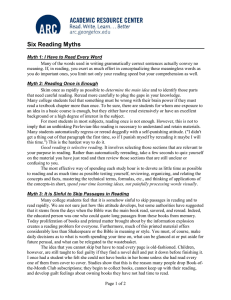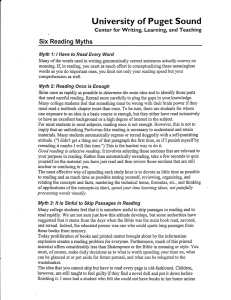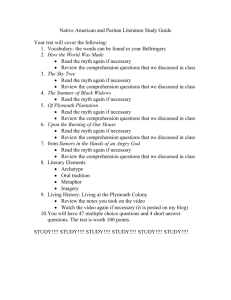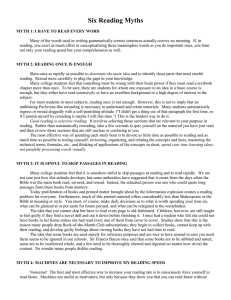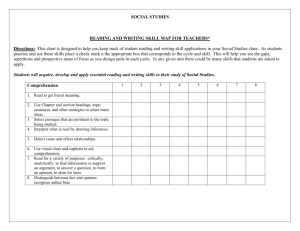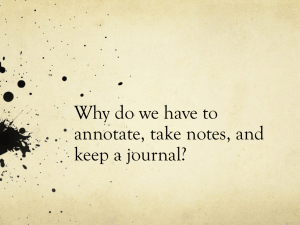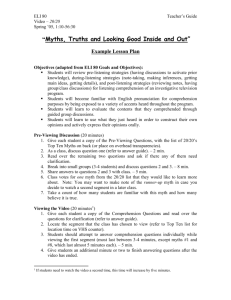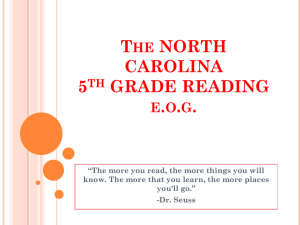6 Reading Myths - Middlebury College
advertisement
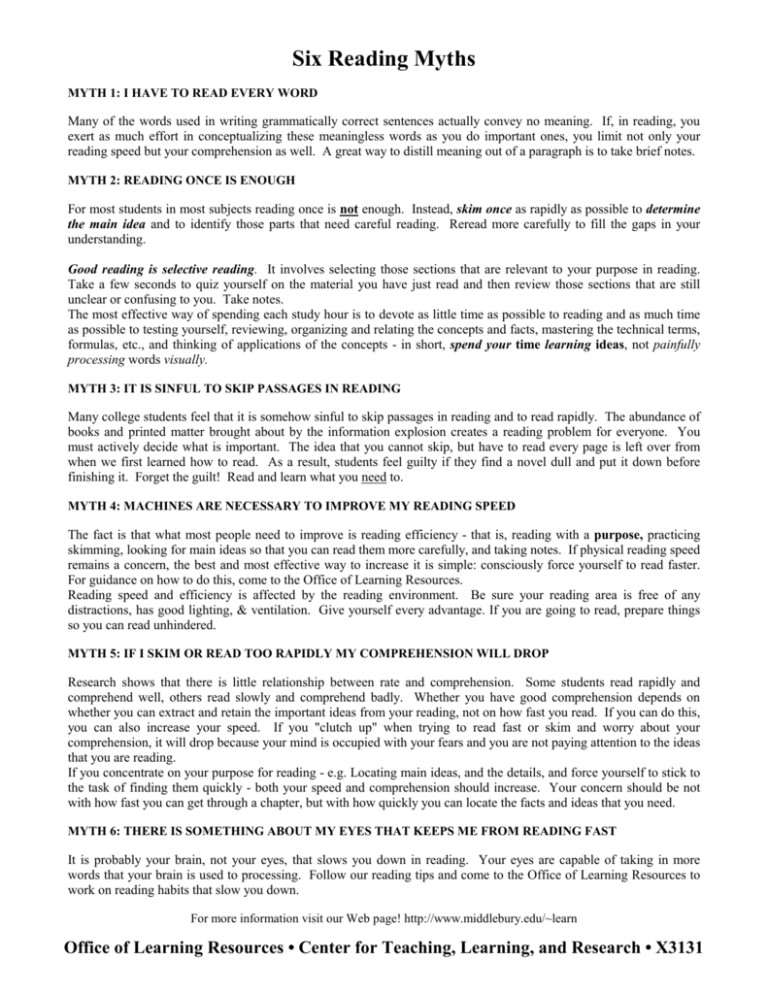
Six Reading Myths MYTH 1: I HAVE TO READ EVERY WORD Many of the words used in writing grammatically correct sentences actually convey no meaning. If, in reading, you exert as much effort in conceptualizing these meaningless words as you do important ones, you limit not only your reading speed but your comprehension as well. A great way to distill meaning out of a paragraph is to take brief notes. MYTH 2: READING ONCE IS ENOUGH For most students in most subjects reading once is not enough. Instead, skim once as rapidly as possible to determine the main idea and to identify those parts that need careful reading. Reread more carefully to fill the gaps in your understanding. Good reading is selective reading. It involves selecting those sections that are relevant to your purpose in reading. Take a few seconds to quiz yourself on the material you have just read and then review those sections that are still unclear or confusing to you. Take notes. The most effective way of spending each study hour is to devote as little time as possible to reading and as much time as possible to testing yourself, reviewing, organizing and relating the concepts and facts, mastering the technical terms, formulas, etc., and thinking of applications of the concepts - in short, spend your time learning ideas, not painfully processing words visually. MYTH 3: IT IS SINFUL TO SKIP PASSAGES IN READING Many college students feel that it is somehow sinful to skip passages in reading and to read rapidly. The abundance of books and printed matter brought about by the information explosion creates a reading problem for everyone. You must actively decide what is important. The idea that you cannot skip, but have to read every page is left over from when we first learned how to read. As a result, students feel guilty if they find a novel dull and put it down before finishing it. Forget the guilt! Read and learn what you need to. MYTH 4: MACHINES ARE NECESSARY TO IMPROVE MY READING SPEED The fact is that what most people need to improve is reading efficiency - that is, reading with a purpose, practicing skimming, looking for main ideas so that you can read them more carefully, and taking notes. If physical reading speed remains a concern, the best and most effective way to increase it is simple: consciously force yourself to read faster. For guidance on how to do this, come to the Office of Learning Resources. Reading speed and efficiency is affected by the reading environment. Be sure your reading area is free of any distractions, has good lighting, & ventilation. Give yourself every advantage. If you are going to read, prepare things so you can read unhindered. MYTH 5: IF I SKIM OR READ TOO RAPIDLY MY COMPREHENSION WILL DROP Research shows that there is little relationship between rate and comprehension. Some students read rapidly and comprehend well, others read slowly and comprehend badly. Whether you have good comprehension depends on whether you can extract and retain the important ideas from your reading, not on how fast you read. If you can do this, you can also increase your speed. If you "clutch up" when trying to read fast or skim and worry about your comprehension, it will drop because your mind is occupied with your fears and you are not paying attention to the ideas that you are reading. If you concentrate on your purpose for reading - e.g. Locating main ideas, and the details, and force yourself to stick to the task of finding them quickly - both your speed and comprehension should increase. Your concern should be not with how fast you can get through a chapter, but with how quickly you can locate the facts and ideas that you need. MYTH 6: THERE IS SOMETHING ABOUT MY EYES THAT KEEPS ME FROM READING FAST It is probably your brain, not your eyes, that slows you down in reading. Your eyes are capable of taking in more words that your brain is used to processing. Follow our reading tips and come to the Office of Learning Resources to work on reading habits that slow you down. For more information visit our Web page! http://www.middlebury.edu/~learn Office of Learning Resources • Center for Teaching, Learning, and Research • X3131
